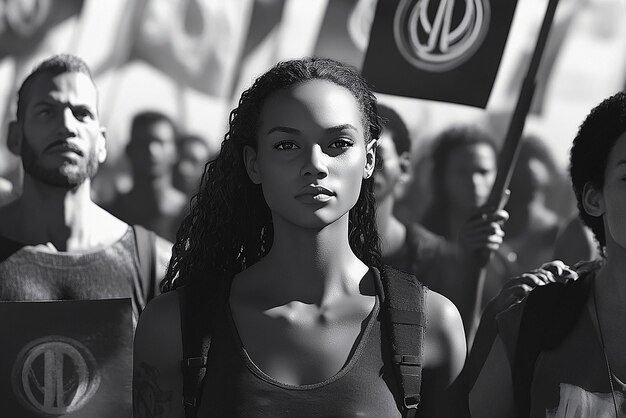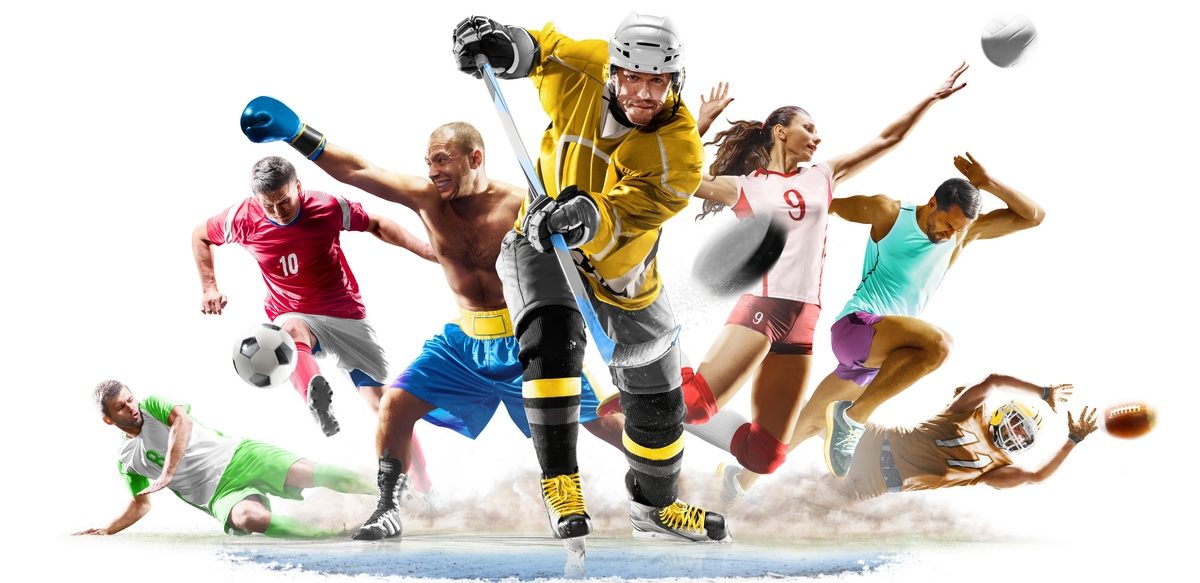
In recent years, athletes have become more than just figures on the field or court. They have emerged as powerful voices in social and political movements, using their platforms to advocate for change. This shift has seen athletes speak out on a variety of issues, from racial equality and human rights to environmental sustainability and gender equality. The influence of sports stars has grown exponentially, and their activism is now an integral part of the broader social landscape.
Sports figures are increasingly stepping into the role of social change leaders, with many leveraging their fame to bring attention to injustices and inequality. What was once seen as a risky move–athletes speaking out on controversial issues–has become more common and accepted, reflecting a broader societal change. From the protests against racial discrimination to the campaigns for climate action, athletes are at the forefront of important conversations.
The rise of athlete activism challenges traditional views of sports as an apolitical arena. Athletes are no longer simply entertaining us–they are influencing policy, shaping public opinion, and sparking meaningful change. In this article, we explore how this transformation has occurred, why athletes are embracing activism, and what the future holds for the intersection of sports and social change.
The Growing Influence of Athletes in Social and Political Movements
Over the past few decades, athletes have increasingly become more than just entertainers. As public figures with enormous reach, many have recognized their ability to influence social and political change. Whether through direct action, public statements, or social media campaigns, athletes are using their platforms to speak out on critical issues, often driving public discourse and pushing for policy changes. This growing influence is particularly evident in movements focused on racial justice, gender equality, and environmental sustainability.
The power of athlete activism can be attributed to several factors. First, athletes are often seen as role models, with their actions resonating deeply with fans and the general public. Their influence is amplified by global media coverage and social media, which allows them to instantly share their message with millions of people worldwide. Additionally, sports figures have been increasingly supported by fans who admire not only their athletic skills but also their commitment to making a difference in society.
Key Examples of Athlete Activism in Recent Years
Throughout history, athletes have used their platform to challenge the status quo, but the modern era has seen an even more pronounced shift toward activism. Some notable examples include:
- Colin Kaepernick – The former NFL quarterback’s peaceful protest against racial injustice by kneeling during the national anthem sparked a global conversation on police brutality and systemic racism.
- Naomi Osaka – The tennis star has been vocal about mental health awareness, withdrawing from major tournaments to prioritize her well-being and advocate for better treatment of athletes’ mental health.
- LeBron James – An outspoken advocate for racial equality, James has launched initiatives like the “I PROMISE” school, aimed at providing education and support for underprivileged children in his hometown of Akron, Ohio.
- Greta Thunberg and the Climate Movement – Although not an athlete herself, Thunberg’s movement has been supported by a growing number of sports figures, including Cristiano Ronaldo and Lionel Messi, who use their platforms to raise awareness about climate change.
The growing influence of athletes in social and political movements has also led to the formation of organizations and initiatives dedicated to amplifying their impact. Many sports leagues, including the NBA and NFL, have begun to provide more support for athlete-led activism, offering platforms for players to discuss and take action on social issues.
As the role of athletes continues to evolve, their influence in shaping political and social conversations is undeniable. They have become key players in the fight for justice and equality, often leading the charge when others remain silent. This evolution is not just a passing trend but a fundamental shift in the intersection between sports, activism, and societal change.
How Sports Figures Are Using Their Platform for Advocacy and Change
Sports figures have long been admired for their talents, but in recent years, many have chosen to leverage their fame and success to advocate for social, political, and environmental causes. With a global audience and unparalleled influence, athletes now have the ability to impact public opinion and drive significant societal changes. From raising awareness about racial justice to supporting climate action, sports stars are increasingly using their platform to push for change.
The ways in which athletes are advocating for change are diverse and creative. Some use their presence at major events to send powerful messages, while others establish foundations or engage in direct activism in their communities. Social media has played a key role in this shift, providing athletes with an accessible and direct way to communicate their beliefs and mobilize their followers. Through these efforts, athletes are not only making statements but also creating long-lasting impacts across various issues.
Common Ways Athletes Advocate for Social Change
- Social Media Activism: Athletes often use platforms like Twitter, Instagram, and TikTok to speak out about political issues, share their views, and raise awareness. Their posts can spark important conversations, as seen with players like LeBron James and Colin Kaepernick.
- Philanthropy and Foundations: Many athletes establish foundations to address societal issues. For example, Michael Jordan’s Jordan Brand’s “Black Community Commitment” initiative and Serena Williams’ efforts to support gender equality and education for young girls.
- Protests and Symbolic Acts: Athletes like Kneeling Colin Kaepernick during the national anthem or wearing messages on their uniforms (e.g., “Black Lives Matter”) to highlight important causes have made their activism a central part of their careers.
- Community Engagement: Many athletes work directly with their communities, providing resources, support, and opportunities to underserved groups. LeBron James, through his “I PROMISE” school, has made a significant impact on the educational outcomes of children from low-income families.
- Partnerships with Non-Profits and Causes: Athletes frequently partner with NGOs and movements, leveraging their influence to draw attention to causes. For instance, Naomi Osaka has supported mental health initiatives, while Venus Williams has advocated for equal pay in sports.
These actions highlight the ways athletes are using their platform to not only speak out but also create tangible, long-term changes. Through their voices, financial support, and personal involvement, sports figures are reshaping how activism can intersect with sports, proving that being a leader in the community goes far beyond the playing field.
As athlete activism continues to grow, their ability to challenge injustices, support marginalized communities, and bring attention to pressing issues is becoming more ingrained in the fabric of global activism. Their influence is not only changing how we view athletes but also demonstrating the powerful role sports can play in social transformation.
The Future of Athlete Activism: Challenges and Opportunities for Impact
As athlete activism continues to rise, the future of sports figures as agents of social change remains both promising and complex. The influence of athletes has already proven transformative in numerous areas, from racial justice to environmental activism, and their platforms are becoming even more powerful. However, the road ahead is not without challenges. While athletes are increasingly using their visibility to advocate for important causes, they also face significant obstacles, including backlash from fans, sponsors, and even governing bodies. The future of athlete activism will likely depend on how these challenges are navigated and how athletes balance their professional careers with their advocacy efforts.
On the other hand, the opportunities for impact are immense. As global awareness of social issues grows, athletes have the chance to lead the way in shaping not only the sports world but also the broader political and social landscape. With the continued support of fans and the ever-expanding reach of digital platforms, athletes are well-positioned to drive meaningful change on issues such as climate change, racial inequality, and gender parity. The question is not whether they will continue to have an influence, but how they can maximize that influence in a responsible and sustainable way.
Key Challenges and Opportunities for Athlete Activism
- Balancing Activism with Professional Careers: Athletes often walk a fine line between their career commitments and their desire to be outspoken on social issues. Many face pressure from sponsors, teams, and leagues to maintain a neutral stance, which can create a tension between personal beliefs and professional obligations.
- Public Backlash and Criticism: As seen in the cases of Colin Kaepernick and LeBron James, athletes who engage in activism may face significant backlash from fans or political opponents. This can affect their public image, endorsements, and even their careers.
- Amplifying Marginalized Voices: One of the greatest opportunities for athletes is using their platform to amplify voices from marginalized communities. By aligning themselves with grassroots movements and lesser-known activists, athletes can help bring attention to issues that often go overlooked in mainstream media.
- Expanding Influence Through Social Media: The rise of social media gives athletes a direct and unfiltered means of communication with their audiences. This allows them to bypass traditional media channels and share their messages with millions of followers instantly, creating a more dynamic and immediate impact.
- Building Sustainable Change: While many athletes are successful at raising awareness, the challenge is translating that attention into long-lasting change. Through partnerships with organizations, creating foundations, or influencing policy, athletes can work to ensure that their advocacy has a tangible and enduring impact on society.
In conclusion, the future of athlete activism is filled with both potential and challenges. As they continue to push boundaries and advocate for social justice, sports figures will undoubtedly encounter resistance and criticism. However, their role as agents of change is becoming increasingly vital in today’s world. The ongoing intersection of sports and activism is a testament to the power of athletes to inspire, challenge, and lead, ultimately shaping the course of history for future generations.


